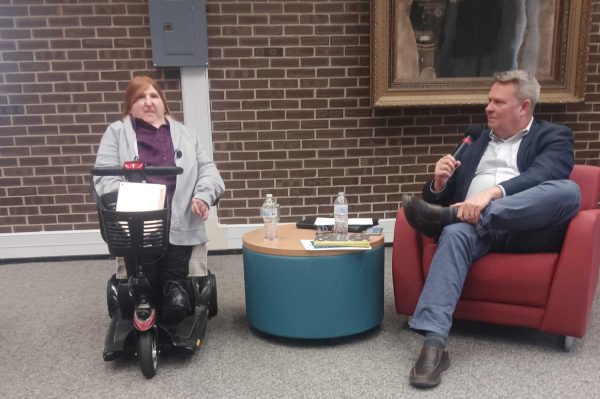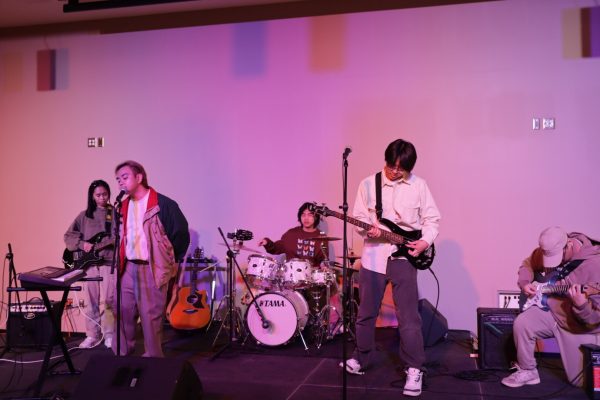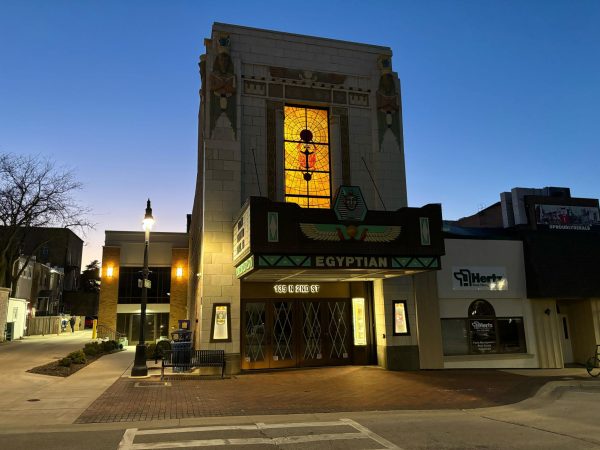‘Persians’ well-executed, but ending is heavy-handed
April 4, 2008
“The Persians,” directed by Christopher Markle, is not for the squirmy or asthmatic.
The show strides forward on legs of lengthy orations. The dialogue, addressed to the audience as often as it is performed conversationally between the actors, brings an almost discomforting level of audience participation to the play.
Early in the piece, the ensemble claps repetitively and stares wide-eyed into the seats, as if to suggest they won’t stop until every spectator has joined them.
“The Persians” exposes the ignorant pride of the only men remaining in the ancient empire while their armies march on Greece. They foreshadow the coming news of defeat with a momentary lapse in their confident swaggers, saying, “But might we offend with our … brazen confidence?”
And it would seem that they had.
But “The Persians'” history, for once, is written by the losers. A survivor of the massacred army staggers before the group of royal counselors and reels with news of the defeat. The cast seldom interrupts the tattered and scarred soldier as he recounts the annihilation of the army, one of the many long-winded speeches in the play.
Among the many notable technical details are the dripping columns of sand that spill from the ceiling, off and on, throughout the play. The disquieting dry rainfall supplies not only a visual and aural ambiance, but fills the air with a dusty roughness that dries one’s lungs.
The lighting cues are precise, but the music cues, though similarly well-executed, become repetitive and overused.
The players themselves, costumed sharply in 20th century Southern-aristocrat attire, effectively convey the puffy-chested hubris-turned-disbelieving-shock as the news of their country’s defeat dawns on them. They conquer the bare, wide-open set as they converge and scatter over the course of the performance.
Technically well-executed, “The Persians” showcases its cast’s oratory skill and its crew’s technical ability.
But for Markle, this isn’t quite enough: With the startling finale, “Persians” begs the viewer, and not very subtly, to consider the war in Iraq as a modern counterpart to the play. The modernized costumes already offer a whiff of social commentary, but the overwrought ending shatters that nuance with the carelessly obvious declaration, as if to say, “NOTICE THE SIMILARITIES?!”
In spite of its decidedly provocative finale, “The Persians” still pleases on all other fronts.











